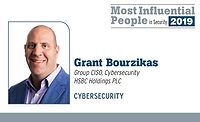Michael Gips has been working in the security industry since 1994. Gips developed and built the CSO Roundtable (now the CSO Center for Leadership and Development) as a standalone membership organization for ASIS, which debuted in 2008. It provides executive-level education, resources, networking and activities for CSOs and their deputies from the world’s most influential organizations. The CSO Roundtable also spawned ASIS Women in Security, a now thriving group within ASIS that was the first of its kind in the profession.
Gips says his work on the CSO Roundtable is his one of his greatest accomplishments. “In collaboration with several security executives… we have been able to build top-tier programming, content, experiences and networking opportunities for hundreds of members across the globe. We have hosted successful programs in places as diverse as Panama and Prague, Mexico City and Mumbai, and Texas and Turkey. Most important, the CSO Center, by encouraging membership among and tailoring content for deputies, advances the profession by developing the next generation of executive security leaders.”
Gips regularly speaks at security industry events, to include GSX and ASIS Europe, on topics including security department structures, security trends, security skill development, active assailant, digital transformation and insider threat.
He is a coauthor of the seminal research study, The U.S. Security Industry: 2014-2017, the first exhaustive examination of the private security industry since the Hallcrest Report. He is a contributor to an influential report on security as a business enabler – Leveraging Corporate Security for Business Growth and Improved Performance: The Transformative Effect of 9/11 – which was jointly written by the CSO Roundtable, ISMA and the Conference Board. He contributed to the CSO Roundtable report: Enterprise Security Risk Management: How Great Risks Lead to Great Deeds. He also serves on the Research Committee of the ASIS Foundation Board of Trustees, where he is spearheading a research project on the extent of convergence of physical security, cybersecurity and business continuity in the United States, Europe and India.
His career advice consists of two pieces: diversify your skill set and network. “In private security, skills like intelligence collection or assessment, investigations, or computer forensics will get you in the door, but you need to continue learning and growing if you want to reach the management or executive level. Business skills, a holistic view of risk management and emotional intelligence will determine how far you will go as a leader. And your connections are precious, not only because they can help you with security insights and career direction, but also because of what you can do for them and their colleagues in leaving the profession in a better state than you found it.”



